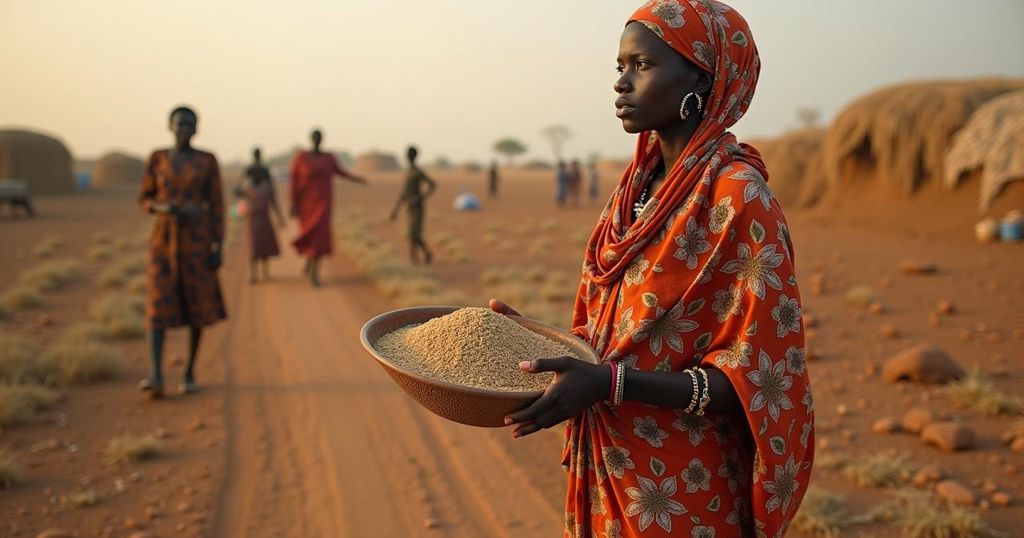Widespread Starvation in War-Torn Sudan: A Call for Global Attention
Starvation is widespread in conflict-affected Sudan, with WHO Director-General Dr. Tedros Adhanom Ghebreyesus stating that nearly half of the population requires urgent assistance. He highlighted that civil strife has led to significant displacement and fatalities since April 2023 and criticized the international community’s insufficient response, attributing the lack of attention partly to racial biases. Recent UN declarations indicate famine conditions affecting hundreds of thousands and reveal ongoing challenges due to regional political dynamics.
Starvation has reached alarming levels across war-torn Sudan, as reported by the World Health Organization (WHO) during a discussion with the BBC’s Today programme. Dr. Tedros Adhanom Ghebreyesus, WHO’s Director-General, highlighted the severity of the humanitarian crisis, mentioning that ongoing displacement has rendered Sudan the country with the largest refugee crisis globally, affecting approximately 12 million individuals. The ongoing civil conflict, which erupted in April 2023 between the Sudanese army and the paramilitary Rapid Support Forces (RSF), has led to extensive casualties. Dr. Tedros described the scenes encountered during his visits to internally displaced persons camps and hospitals, underscoring the devastating condition of many children suffering from severe malnutrition. He emphasized that around 25 million people, nearly half of Sudan’s population, now require assistance. Despite the dire circumstances, Dr. Tedros lamented the international community’s inadequate response, attributing part of this neglect to racial disparities in the attention afforded to humanitarian crises in Africa compared to other regions, such as Ukraine. He called for greater coverage from mainstream media to highlight the tragic situation in Sudan, referring to a recent UN declaration of famine affecting approximately 500,000 displaced individuals in Darfur. The persistent conflict in Sudan is further complicated by external influences, with allegations of support for the RSF from the United Arab Emirates and close government ties maintained by Saudi Arabia. Efforts to mediate the conflict, facilitated by Saudi Arabia and the United States, have yet to yield successful outcomes.
The humanitarian crisis in Sudan stems from a civil war that began in April 2023 between two powerful factions: the Sudanese armed forces and the RSF. This conflict has not only resulted in loss of life but has also triggered a massive displacement crisis, with millions forced to flee their homes. The intricate dynamics of regional politics and international relationships, especially regarding support from countries like the UAE and Saudi Arabia, exacerbate the complexity of the situation. Furthermore, Dr. Tedros has pointed out perceived racial biases in the global humanitarian response, highlighting how conflicts in places like Sudan receive significantly less media and financial support compared to conflicts in Europe. His remarks compel observers to consider not just the immediate humanitarian needs, but also the broader implications of racial equity in disaster relief.
The dire situation in Sudan represents a significant humanitarian crisis, marked by widespread starvation and displacement, which is largely overlooked on the global stage. The WHO’s call for attention underscores the necessity for immediate international aid and coverage to address the urgent needs of the Sudanese population. The intersection of geopolitical dynamics and racial disparities in humanitarian aid further complicates the crisis, requiring a re-evaluation of how global support is administered. Without prompt and adequate action from the international community, the suffering in Sudan risks deepening, signaling an urgent need for intervention.
Original Source: www.bbc.com




Post Comment